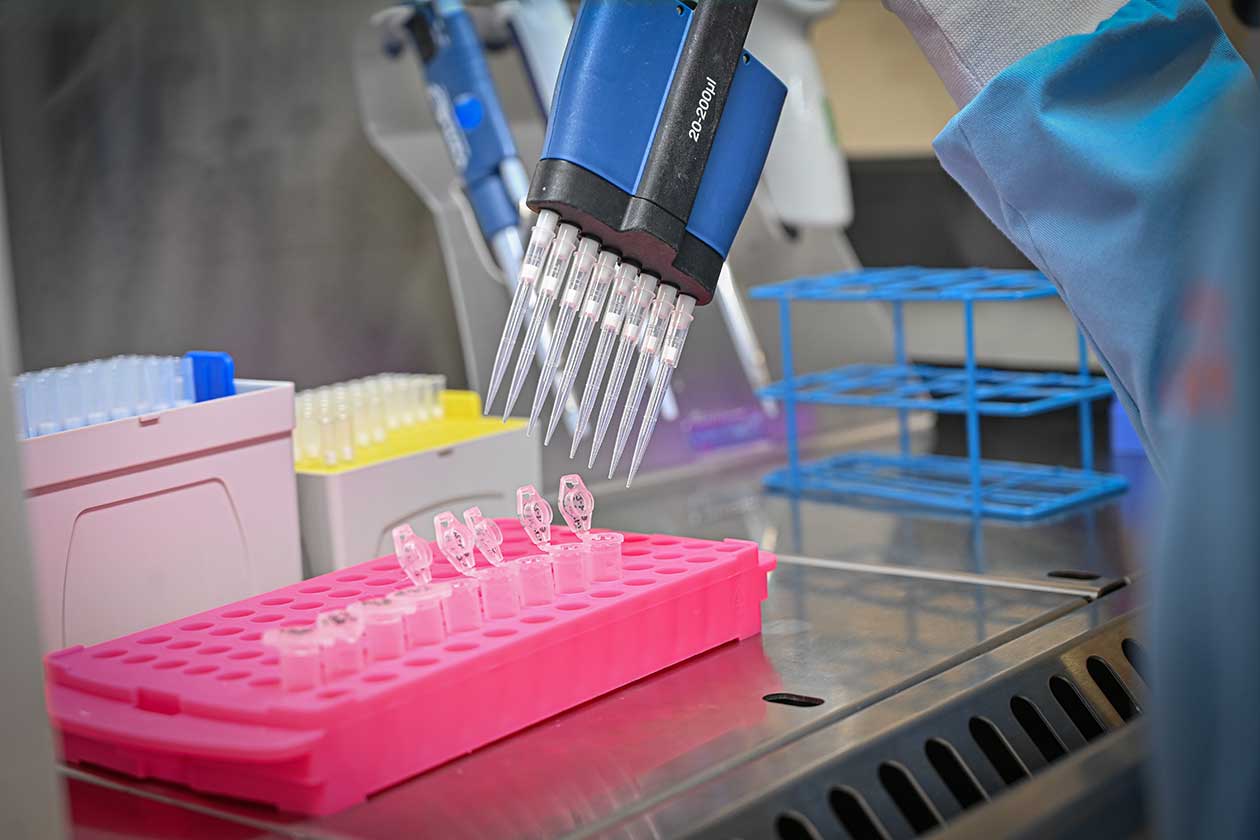Research into the development of innovative therapies to address chronic intestinal inflammation and prevent colorectal cancer is essential to improve the quality of life of patients and reduce the burden of this disease on society. The combination of advances in biochemistry, molecular biology, and therapeutic technology offers promising opportunities in this area of medicine. In this regard, at AINIA, we are researching the search and development of innovative therapies using natural biomolecules, which allow for the design of innovative strategies to prevent and treat inflammatory processes associated with colorectal cancer. Here’s what we know.
Research strategies to treat intestinal inflammation and prevent colorectal cancer
The link between chronic inflammation and colorectal cancer is an area of interest in biomedical and pharmaceutical research, and efforts are made both to better understand the underlying mechanisms and to develop more effective treatments with fewer side effects.
Among the research strategies, the following stand out:
- Therapies with natural biomolecules: Given the bioactive potential found in nature, natural-origin biomolecules, such as those found in plants and microorganisms, represent a promising source of therapeutic compounds. Research into these molecules can lead to the development of safer and more effective treatments for intestinal inflammation and the prevention of colorectal cancer.
- Identification of specific therapeutic targets: In addition to new therapies, another strategy to address and/or prevent the disease is the identification of specific therapeutic targets. Elucidating the molecular and cellular mechanisms involved in chronic intestinal inflammation and its relationship with colorectal cancer is essential. Identifying specific therapeutic targets allows for the development of targeted treatments that can be more effective and selective. More specific therapies can help reduce adverse effects, which improves the quality of life for patients and increases adherence to treatment.
- Prevention strategies: Besides treatment, it is important to focus on prevention strategies. This includes the early identification of at-risk populations, the promotion of healthy lifestyle habits, and raising awareness about the importance of early detection of colorectal cancer.
Interdisciplinary Collaboration: Key to Effectively Addressing the Complexity of Intestinal Inflammation and Colorectal Cancer
Research in this area often requires the interdisciplinary collaboration of experts in molecular biology, biochemistry, pharmacology, immunology, and oncology, among other fields. This collaboration enables a more effective approach to the complexities of intestinal inflammation and colorectal cancer.
Research in the development of innovative therapies to address chronic intestinal inflammation and prevent colorectal cancer is crucial for improving the quality of life of patients and reducing the burden of this disease on society. The combination of advances in biochemistry, molecular biology, and therapeutic technology offers promising opportunities in this field of medicine.
Search and Development of Therapies to Prevent and Treat Inflammatory Processes Associated with Colorectal Cancer
Based on everything mentioned above, at AINIA, we are developing the PHARMANOVA project, in which we will research the development of tools and technological solutions for the biotechnological, biomedical, and pharmaceutical sectors to search for and develop innovative and targeted therapies based on natural biomolecules from plant and microbial origins. These will allow us to design innovative strategies to prevent and treat inflammatory processes associated with diseases of the colonic mucosa and colorectal cancer.
Based on the needs to advance in the discovery and development of innovative therapies based on biomolecules, the research carried out in PHARMANOVA will allow us to obtain the following results:
- Agile and rapid tools for discovering new molecules for therapeutic purposes through the development of rapid screening systems or platforms on a miniaturized scale. A screening system based on a cellular system representative of the pathology under study and a microbial platform for searching for potentially therapeutic compounds.
- Precise tools for characterizing the biological effect using omics technologies.
- Technologies based on supercritical CO2 for the fractionation of potential sources (or matrices) of therapeutic molecules to obtain biomolecule concentrates.
- Controlled release systems to ensure that the therapeutic molecule reaches the biological target and exerts its action.
- Advanced in vitro cellular models based on 3D bioprinting technologies and organ-on-chip to validate the efficacy of biomolecules and study their mechanism of action.
Seeking Technological Solutions for the Development of Therapeutic Products for Inflammatory Processes Associated with Colorectal Cancer
Through the results of the PHARMANOVA project, AINIA aims to provide technological solutions to companies in the Valencian Community’s health biotechnology sector for the discovery and development of therapeutic products that prevent or treat inflammatory processes associated with diseases of the colonic mucosa and colorectal cancer.
New Methods for Validating Medications
In the USA, a new law signed at the end of December 2022 allows the Food and Drug Administration (FDA) to approve new medications without the need for animal testing.
Thanks to this law, other methods are being used to validate medications, such as human mini-organs (organoids), organs on a chip, and computer-based methods, instead of traditional animal testing methods. These methods have been shown to be more accurate and reliable than animal testing.
These types of in vitro studies align with the research developed by the Preclinical Studies Line with in vitro models, which has technology and know-how based on experimental systems that reproduce the gastrointestinal system and colonic microbiota, as well as cell culture technology, tissue engineering, and microfluidics.




